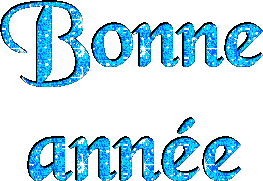Count down to Epiphany! Numbers and dates.
Thanks to one of my wonderful associate teachers Andrea for this simple idea to start the New Year in Spanish ,,,,and I think this will work in other languages too!
Andrea brought home from Spain a couple of weekends ago this advent calendar with a difference if you are a Spanish child waiting for the three Kings to bring your presents on 5 January!
The activities below would transfer to other languages too where there is a festive celebration of Epiphany.
The activities are about numbers and dates
Puzzle It Out
- Give out number cards on each card is the figure for one of the numbers
- Ask the volunteers with the cards to stand at the front of the class
- Don't give any of the children any clues but ask the class to decide how to put these numbers in to a sensible order.
- Can they work out that these are dates of the calendar month from 25th December to 5 January?
- Explain the significance of these numbers and how they are linked to the dates from 25 December to 5th of January.
- Can the children say the numbers with you?
- Can the children count with a partner the missing numbers from 6 to 24?
- Listen to volunteers count the missing numbers.
Hunt the first!
- Share with the children the written form of the number as a date.
- Can the children spot an odd one out because the first of the month will be el primero in Spanish and le premier in French.
- Can the children identify and explain the difference between the first of the month and the other dates they can see.
- Can the children now help you to write some of the dates in the target language between 25th December and 5th January
e.g. Spanish
el primero de enero / el triente de diciembre
e.g.French
le premier janvier/ le trente décembre
Dates and a Quiz Quiz Swap Game of "Happy New Year" or "Kings for the Day"!
- Give out date cards - one to each child (each card is between 25th December and 5th January).
- Ask the children to remind you what is special about the date "first of January~" and why it's different to the other dates they can see on their cards.Have they remembered that its el primero /le premier...? Share with the children the importance too of 1st January or ask the children do they know the significance of the date. Practise with the children wishing each other a "Happy New Year" in the target language.
- The children must walk around the room whispering the question "What date is it" to another child.
- The other child says the date on his /her card.
- The two children swap roles and then when they have completed the question and answer this second time, they swap cards and move to a new partner.
- Hold pauses in the game and anyone holding the date card for 1st January must sit out the next round of questions and answers until you pause the game again.The class should wish them a "Happy New Year" in the target language: "
- Anyone with the date card of 5th January gets a team point...as their Epiphany treat! At the end of the game which team will have most points and be "Kings for the Day" ?
Happy New Year in Spanish!
Happy New Year in French!




